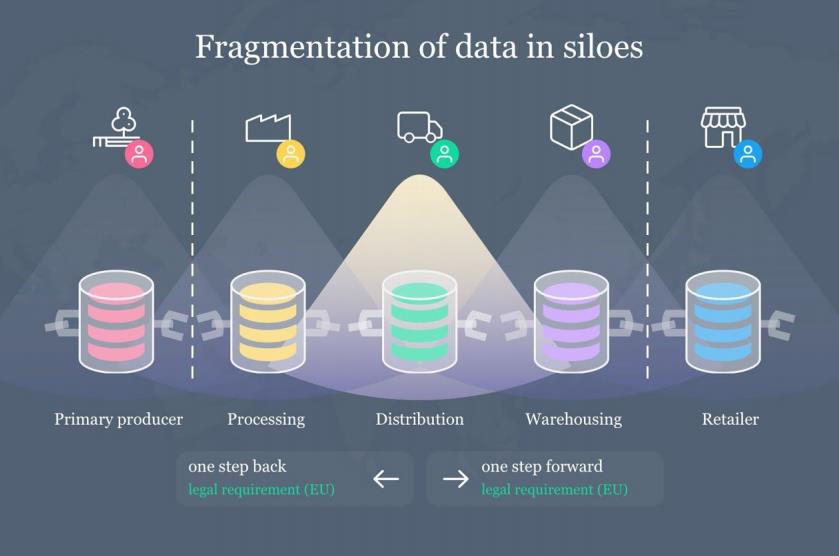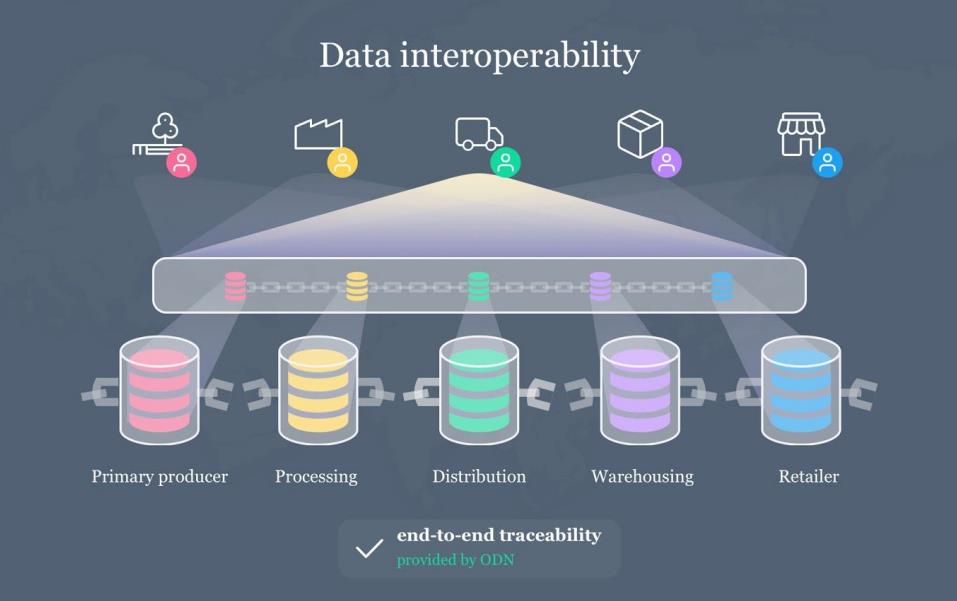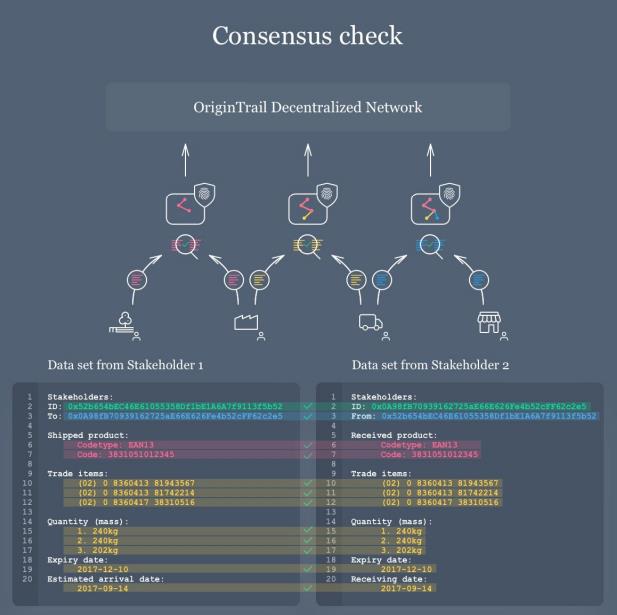OriginTrail research summary
Research summary:
This research report is focused on “OriginTrail” which solves major issues in the supply chain. We will focus on how the project works, what value it adds, and review its pros and cons.
The CMP is $0.23 as of 16th July 2021.
What is OriginTrail?
Origintrail is an award winning protocol that is focused on increasing transparency within the supply chain and was originally conceptualized by founder Tomaz Levak to bring transparency within the system for an organic meat farmer. The aim was to correctly and transparently map the movement of produce from original location to final destination.
With the successful execution of this project, Tomaz decided to apply the same solution to the supply chain of other more complicated goods, especially high frequency deliveries such as milk. The process involves transparency at all levels in the chain – from the farm, to the collection unit, to the packaging unit, to the distribution centre and finally to your doorstep. The entire journey is mapped to a barcode on the purchased item for the end user to easily scan and retrieve.
Origintrail is currently ranked at #296 (based on Mcap) in the cryptocurrency market. The total supply of TRAC tokens (their native token) is 500 million out of which 71% is in circulation. TRAC is currently listed on Uniswap and Bittrex.
What problems does OriginTrail solve?

In the current supply chain system, data is managed in fragmented information systems which aren’t necessarily linked from one stage of the process to the next. Since these information systems work in silos, they lack a uniting mechanism as well as security and exchange protocols to facilitate easy data sharing.
Each participant in the supply chain follows a one step back, one step forward approach for data sharing. A distributor receives only enough information from the previous step i.e. the processor, and shares only limited information forward to the next stage, namely, the warehouse unit either via email, phone or written orders. Often, this leads to missed or compromised communication, impacting the entire data chain process.
Additionally, without adequate data on the supply chain process, stakeholders at each stage are limited to the extent of information made available to them regardless of whether they are consumers, government bodies or operating companies.
Global Standard providers in supply chain (GS1), certification organizations and information systems providers (e.g., IBM) have all attempted at finding a solution, without much success with only some parts in the supply chain having regular audits. This leads to partial data collection, poor verification of collected data, and eventually diminished trust in the whole system.
Could decentralisation be the way forward?
Yes, although at present, none of the current solutions provide high functionality for storing, processing, and interaction between the data available to supply chains. Moreover the available solutions prove to be quite expensive when compared to traditional centralized database solutions.
| Platform | Ethereum | Hyperledger Fabric | IPFS / Filecoin / Storj | BigchainDB |
|---|---|---|---|---|
| System type | Public | Permissioned | Public | Permissioned |
| Intended use | General purpose virtual machine, Smart contracts | Customizable blockchain framework for closed environments | Decentralized file storage | Decentralized document database |
| Data storage cost | High | N/A | Low | Low |
| Database functionalities | No | No | No | Yes |
| Suitable for highly interconnected data | No | No | No | No |
How does OriginTrail bring value to the table?
OriginTrail solves the above problems by setting up blockchain-supported data sharing for supply chains. It brings transparency across the supply chain by breaking the one step back, one step forward loop.

With the proposed solution, consumers in the supply-chain can accurately identify the journey of a product. Here are some applications:
- Covid-19 vaccines – The Pfizer covid vaccine needs to be stored in a temperature-controlled environment. If this condition isn’t met, the vaccine could potentially lose its effects. With a transparent journey of the vaccine efficacy is maintained.
- Counterfeit goods – The counterfeit market represents 3.3% of world trade and such products are potentially hazardous without any quality checks in place. The cosmetic industry is seeping with counterfeited goods. Applying fake cosmetics is equivalent to applying untested chemicals on your face. With OriginTrail’s proposed solution, the end user is assured of the authenticity of the product and organisations can avoid the embarrassment of headlines such as:
Chennai girl pays for Rs 12,000 phone on Snapdeal, gets a brick in the box
- Food-related illness – Food allergies are a serious issue and can also sometimes lead to death. With complete clarity of where the food item came from a person can purchase a food item without any worry. It can also track food-related diseases right to the source.
How does OriginTrail work?
Data Standardization
To achieve a uniform flow of data in the supply chain, the data format needs to be standardized which is why OriginTrail adopts the widely accepted GS1 standards. GS1 is a not-for-profit organization that develops and maintains global standards for business communication. The best known of these standards is the barcode. GS1 standard provides information that supports business processes through which supply chain participants interact.
Data Integrity
To make sure that the stakeholders are not inserting tampered data, Origintrail performs something known as a consensus check. According to their whitepaper, these checks are performed in the following steps:

Step 1: Each stakeholder has to be approved by the previous and the following supply chain stakeholder, creating a chain of accountability.
Step 2: Matching of batch information is verified, including the critical information of batch identifiers, appropriate timestamps, and transactional data. As this step involves company private data (quantities of sales), a Zero-Knowledge Proof mechanism (zero knowledge proofs let you convince me that you know something, or have done something, without revealing to me what your secret thing was) implementation will provide a way to check that private information matching is provable without revealing the information itself.
Step 3: As an additional layer of credibility, auditing firms can validate data through one final check.
ODN
To overcome the shortcomings of the existing blockchain solutions, Origintrail runs on an off-chain decentralized peer-to-peer network referred to as ODN or OriginTrail Decentralized Network. It essentially is a middleware that is chain agnostic.
There are 4 players in the ODN.
- Data Provider: The Data Provider (DP) is an entity that publishes supply chain data to the network.
- Data Creator Node: The Data Creator node (DC) is an entity representing a node that will be responsible for importing the data provided by the DP, making sure that all the criteria of DP are met.
- Data Holder Node: The Data Holder (DH) is a node that has committed itself to store the data provided by a DC node for a requested period of time and making it available for the interested parties. There is a certain risk that these Data Holders may offer false data or tamper with the data, or even pretend to have data that they don’t have. To mitigate this risk, a node will be required to deposit a stake for executing an agreement.
- Data Viewer: The Data Viewer (DV) is an entity that requests data from any network node able to provide that data.
Token utility
TRAC is an ERC-20 token and is designed to be a crucial component of the entire network.
Data providers and creators need to stake their TRAC to run their nodes. When data creators publish data jobs on the ODN they use TRAC to compensate the data holders for their time and resources. As a way to prevent data tampering, and as a promise to hold data for a set period of time, TRAC from a data holder’s stake is also locked via smart contract for the length of the data job. This staked TRAC is slashed if the node fails to provide the data it is holding on-demand. Once the job is completed the data holder receives their own stake back, plus the stake of the data creator.
Industry & Competition Analysis
The global supply chain management is worth $20 billion and is growing at a CAGR of 11.2% from 2020 to 2027. The value of the entire supply chain industry however is worth $50 trillion.
OriginTrail has a few players to watch out for in the cryptocurrency space with Vechain being their biggest competitor.

| Projects | Mcap |
|---|---|
| VeChain | $4.4 Billion |
| Hedera Hashgraph | $1.5 Billion |
| OriginTrail | $83 Million |
| Waltonchain | $37 Million |
Based on the above chart, there are several competitors in the cryptocurrency supply-chain space and OriginTrail has tremendous potential for growth.
Team, Media, and Community Strength
The team comprises 3 founders with expertise in supply chain and technology. Their media presence isn’t strong but their community strength is growing, with over 25,000 Twitter followers & 5,900 telegram followers.
Conclusion
Pros
- OriginTrail is solving an important problem associated with the current supply-chain, right from fake goods to tracking food related diseases right to the source.
- The native token is extremely essential for the ecosystem and has multiple utilities.
- They have survived multiple bear markets and have been operating for over 8 years.
Cons
- OriginTrail does not have an impressive adoption compared to its main competitor Vechain.
MintingM rating for OriginTrail is 3.4/5
| Criteria | Score |
|---|---|
| Industry | 3.7 |
| Opportunity Size | 5.0 |
| Competitive Advantage | 2.5 |
| Tokenomics | 2.8 |
| Team | 2.9 |
| Overall Score | 3.4 |
Get deeper insights into the crypto market’s weekly trends discussed on our Spotify podcast.
Start your Crypto Investments with XMINT Bots today
